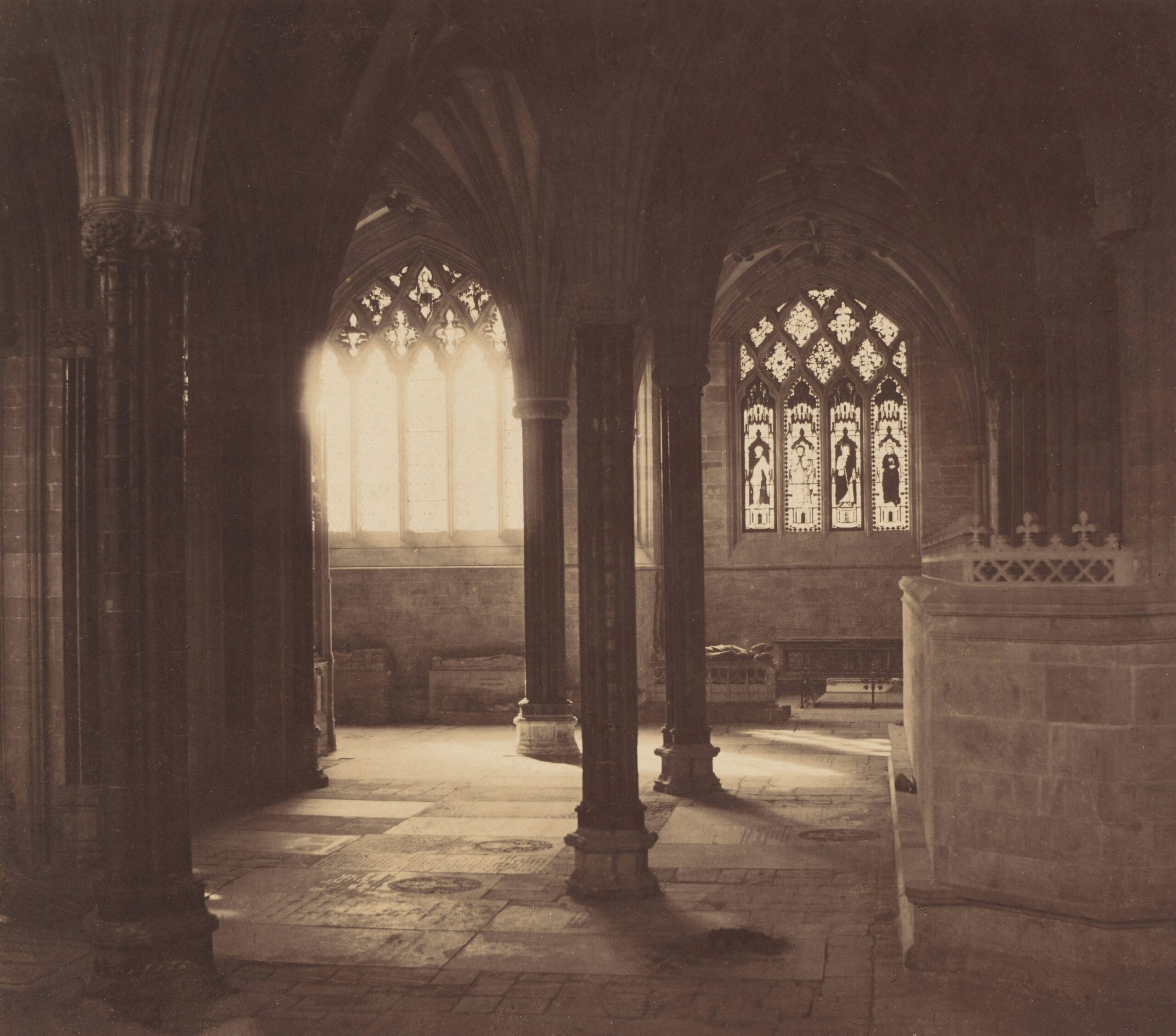Category Music
Published November 17, 2025

Wells Cathedral, by Roger Fenton
Story scent: Wet earth after snowmelt
Story best enjoyed with a taste of: Black liquorice (you get it, or you just don’t)
Play on repeat while reading: “La Yugular“, by Rosalía
Rosalía’s new album LUX dropped on the 7th of November, and it made it clear to me that God exists, and it speaks through her music. Even before it came out, I already knew I would love it. She had been hinting at its themes and content long before the release, and I couldn’t shake the feeling that all these clues were meant for me. I know many people feel connected to their favourite artists, as if the music were written just for them, but this feels different. I’m not religious, yet LUX seems to hum with something spiritual, coded in symbols I’ve been tracing for months: God as a machine, sleek and electric, the world as a cocoon; the communion with oneself and the divine intertwined.
I promise this isn’t religious psychosis. Rosalía and her team are simply masters of their craft, so attuned to the cultural pulse that they’ve managed to make me feel like a genuine trendsetter. (And yes, she once saved one of my TikToks, so allow me that small delusion.) It strikes my soul not only through the religious references I understand after fourteen years in a Catholic school, but also through the sensitivity that shapes each song on the album.
El Titanic cabe en un pintalabios
Un pintalabios ocupa el cielo
El cielo, la espina
Una espina ocupa un continente
Y un continente no cabe en Él
Pero Él cabe en mi pecho
Y mi pecho ocupa Su amor
Y, en Su amor, me quiero perder
The Titanic fits in a lipstick
A lipstick occupies the sky
The sky is the thorn
A thorn occupies a continent
And a continent does not fit in Him
But He fits in my chest
And my chest occupies His love
And in His love I want to lose myself
— Rosalía, “La Yugular”
It’s like those moments during a spiritual awakening when you start noticing synchronicities everywhere. That has been happening to me for years. LUX, with its mix of religious symbolism, languages, and experimental production, feels like the surface of something deeper. Somehow, I can always link art to whatever is happening in my own life, and as an Erasmus student, this album reflects the linguistic chaos I live in every day, the discovery, the experimentation, the realisation that I must be uncomfortable to progress. It reminds me of how, last winter, Robert Eggers’s Nosferatu struck that same exact chord. It was late 2024, and I couldn’t stop imagining myself living somewhere northern and cold (where I live now), with snow-swept pitched roofs and twisting streets that look straight out of German Expressionism, when that film appeared. I’d heard about it, being an Eggers fan, but I hadn’t expected to be absorbed by an aesthetic I had only just begun to dream of. Since then, Nosferatu (2024) feels like it belongs to me, the way Ellen longed to belong to Orlok.
And that’s the beautiful thing about art, the way it breaks through us and reaches the core, what touches us the most and, in some way, distorts our realities, even if only for a few minutes, making us feel profoundly alone inside this shell. To reach the core is to strike the perfect chord. The digital and creative worlds feed one another in a constant loop, nourishing and echoing cultural references as it happens in the third verse of La Yugular. It’s not surprising, then, that this cryptic conversation is sometimes visible to the public, occasionally by coincidence, but often as part of a pattern. And I, as an internet addict, recognise that pattern. Diving into rabbit holes is how you learn to spot the secret code, the web of references buried within our cultural landscape. These well-trained eyes and minds often belong to artists who, like Rosalía, use this prophetic logic to intuitively sense what is about to rise to the surface.
This capitalist rhythm might be seen as a way of selling art to the industry, or perhaps as a way of preserving it in a world that rewards quantity over quality. Artists pick and choose from the blurred aesthetics and ideas floating in the primordial soup of niche online corners, and then pull them to the surface in the form of a song, a film, or a fashion trend.
And in the end, that’s what makes LUX (and art more broadly) so intoxicating: it’s both personal and universal, intimate and prophetic, individual and collective. The moment you feel the pattern before anyone else, the hints and echoes of a future piece, it isn’t coincidence but communion. It’s the recognition that art doesn’t simply exist to be consumed; it exists to be traced, decoded, and felt. Rosalía’s music, the hidden corners of the internet, all of it converges in those fleeting moments when the world seems to fold in on itself, and you find yourself both small and infinite, alone and connected.
And that, for me, is the only thing that truly makes me feel God: to witness the code, to feel it resonate, and to let it change you, quietly, irreversibly, from the inside out.
Dios desciende y yo asciendo
Nos encontramos en el medio
God descends and I ascend
We meet in the middle
—
Rosalía, “Magnolias”


